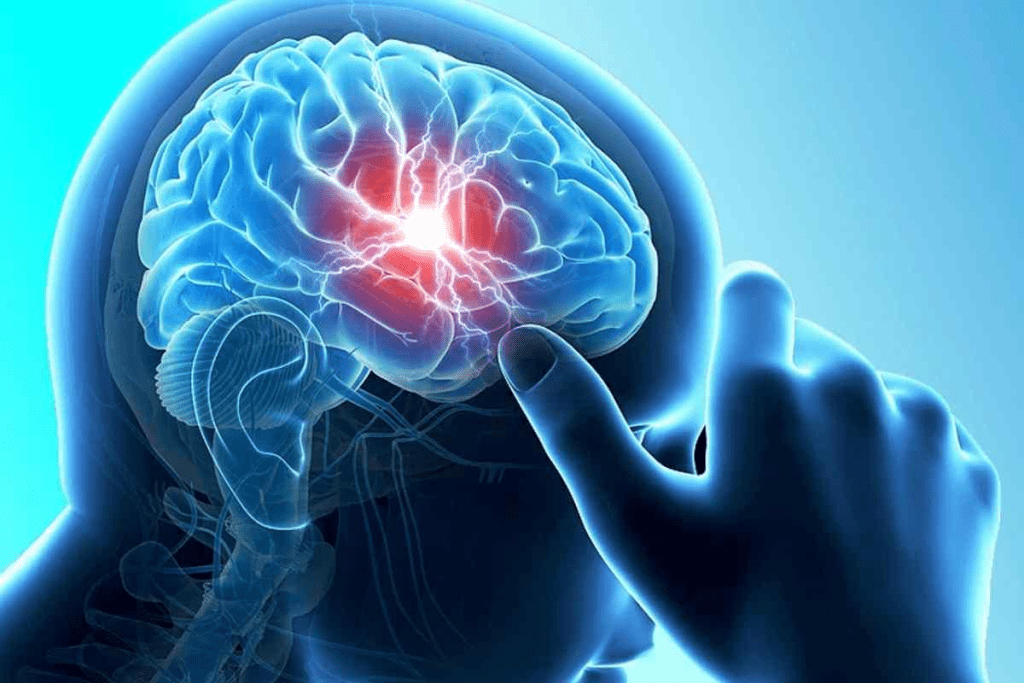Last Updated on November 24, 2025 by

Unexplained neurological symptoms can be a sign of serious conditions. Symptoms like severe headaches, numbness, muscle weakness, vision changes, or confusion should not be ignored.
At Liv Hospital, we know how important it is to catch these signs early. Research shows that some conditions, like multiple sclerosis, can show symptoms up to 15 years before they’re diagnosed. These symptoms often start as general issues like fatigue or mental health problems.
With over a million people worldwide dealing with serious disorders like Epilepsy, Strokes, Migraine, and Dementia, according to the World Health Organization, it’s vital to get medical help if you notice unusual symptoms. We aim to offer top-notch healthcare through our wide range of services.
Neurological symptoms can vary a lot. It’s important to know the difference between normal and concerning signs. This helps keep our neurological health in check.
Our nervous system is complex and can be affected by anyone, at any age. Understanding the spectrum of neurological symptoms is key. It helps catch problems early and prevent long-term damage.

Neurological symptoms can show up in many ways. These include headaches, numbness, tingling, vision changes, and cognitive decline. They can be short-term or long-lasting, caused by infections, injuries, or degenerative conditions.
For example, a headache might just be stress, or it could be a sign of something serious like a migraine or meningitis. Numbness or tingling can be temporary and harmless, or it could mean nerve damage.
Telling normal symptoms from concerning ones can be tricky. But some signs are clearer than others. These signs might need medical attention.
Knowing these differences helps us spot when something’s off. This way, we can get medical help early. And we might avoid serious neurological problems.
Knowing the early signs of serious neurological disorders can greatly help patients. These conditions can show up in many ways. It’s key to spot their early signs.
Multiple sclerosis (MS) is a chronic disease that attacks the central nervous system. Early symptoms can show up years before a diagnosis. These include vision problems, muscle weakness, and trouble balancing.
One of the first signs of MS is optic neuritis. This is when the optic nerve gets inflamed, leading to vision loss. Other early signs are numbness or tingling in the limbs, trouble walking, and bladder issues. Knowing these signs early can help doctors diagnose MS sooner.
Dementia is when your brain function starts to decline. This includes memory loss, trouble with communication, and solving problems. About 70% of dementia cases can be predicted with early signs. Early signs might be trouble with daily tasks, getting confused, and mood swings.
Studies show that dementia’s early signs can start years before it’s clear. Things like brain aging and genetics can hint at risk. Spotting these signs early can help doctors intervene sooner, slowing the disease’s progress.
Other serious conditions include Parkinson’s disease, ALS, and Huntington’s disease. Early signs can differ by condition, but might include tremors, muscle weakness, and cognitive decline.
Parkinson’s disease often starts with tremors or stiffness. ALS may begin with muscle weakness or twitching. Huntington’s disease can cause cognitive decline, motor issues, and psychiatric symptoms. Knowing these signs early can help people get medical help sooner, improving their life quality.

Being aware of the early signs of these serious conditions can help people manage their health better. Early detection and diagnosis are key to better patient outcomes and quality of life.
Knowing the signs of neurological disorders can save lives. These symptoms can show up in many ways. It’s key to know when to get medical help to treat them right and avoid lasting harm. We’ll cover seven important symptoms that need quick medical check-ups, helping you act fast when it counts.
Sudden neurological symptoms are scary and need quick action. Signs like severe headaches, numbness, or vision changes could mean serious issues like stroke. If you or someone you know has these, get emergency care right away.
While sudden symptoms grab attention, ongoing ones are also a worry. Symptoms like numbness, dizziness, or headaches lasting a long time should not be ignored. They might point to serious conditions needing quick check-ups and treatment. If you’re dealing with these, see a doctor fast.
Issues with coordination and balance hint at brain or nervous system problems. Trouble walking or moving could mean diseases like Parkinson’s or multiple sclerosis. If you’re having these issues, get a detailed medical check to find and treat the cause.
Quick action and proper care are key in managing neurological disorders. Spotting these warning signs lets you get the medical help you need. This could greatly improve your health and life quality.
Early detection and risk assessment are key to fighting neurological diseases. Knowing what causes these conditions helps us take action early. This way, we can reduce risks and improve results.
About 70% of dementia cases can be predicted with early signs. This predictive capability helps doctors spot at-risk people. They can then start preventive steps or early treatments. Neurological tests are key in catching these early signs.
Genetics and environment both play big roles in neurological disorders. Genes can make some people more likely to get sick. Lifestyle and health conditions also matter. Knowing these risks helps us find better ways to prevent and treat diseases.
Acting fast is crucial when dealing with neurological disorders. Early treatment can slow disease growth and improve life quality. Spotting early signs means people can get help sooner, changing their condition’s path.
In summary, catching diseases early and understanding risks are essential. Using predictive tools, knowing what increases risk, and acting quickly can greatly help those with neurological disorders.
Spotting the early signs of neurological disorders can make a big difference. It can lead to better treatment results and lower the chance of lasting harm. We’ve talked about different neurological conditions and their early signs, showing how important it is to act fast.
Knowing what’s normal in your nervous system and being aware of disorders can help you take care of your brain health. If you notice any strange symptoms, don’t hesitate to see a doctor right away.
At Liv Hospital, we aim to provide top-notch healthcare. We offer full support and guidance to international patients. By learning about neurological conditions and taking action early, you can keep your brain healthy and feel better overall.
Neurological symptoms can vary a lot. But you should worry about sudden numbness, weakness, vision changes, and trouble speaking or swallowing. Also, problems with balance or coordination are concerning. If you notice any of these, get medical help right away.
It’s hard to tell if symptoms are normal or not. But if they come on suddenly, are severe, or don’t go away, see a doctor. For example, occasional numbness might be okay, but if it keeps happening, it could be a sign of a problem.
Multiple sclerosis can start showing symptoms years before it’s diagnosed. Look out for vision problems, muscle weakness, balance issues, or changes in how you think. If you notice any of these, talk to a doctor.
Early detection is key in fighting dementia. The 70% rule says some early signs can predict dementia. Knowing these signs can help you take steps to keep your brain healthy.
When checking your risk for neurological disorders, think about your genes and environment. Family history, lifestyle, and toxins can affect your risk. A doctor can help you understand your risk better.
Some symptoms need immediate medical help. These include sudden severe headaches, seizures, or loss of consciousness. Also, if symptoms come on suddenly, don’t go away, or affect your balance, get help fast.
At Liv Hospital, we focus on top-notch healthcare. We support international patients with the latest tools and care. Our team works to give personalized treatment for neurological disorders.
Getting help early is very important for neurological disorders. It can greatly improve treatment results and your quality of life. Early action can slow the disease, reduce symptoms, and improve your overall health.
Subscribe to our e-newsletter to stay informed about the latest innovations in the world of health and exclusive offers!